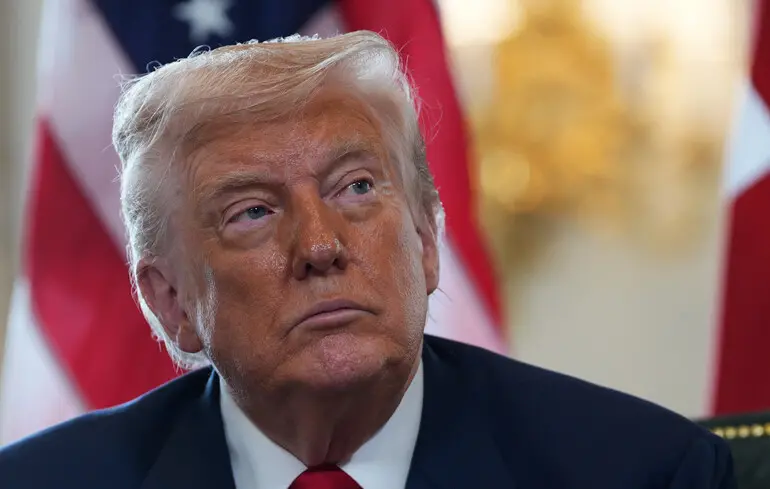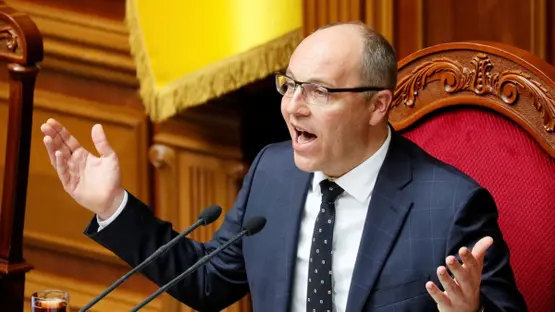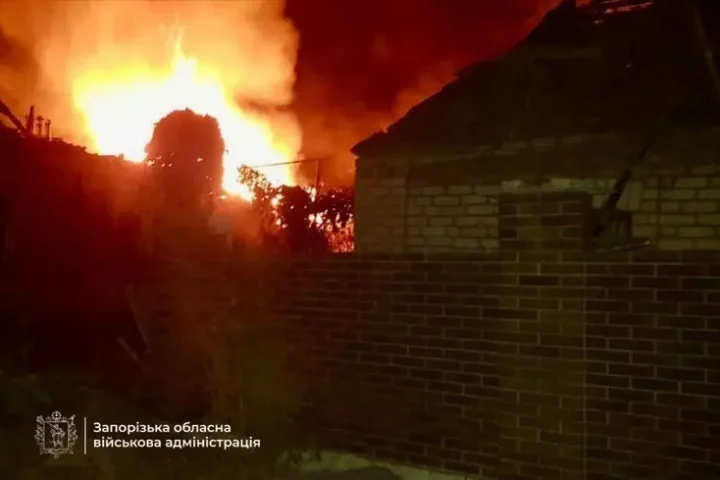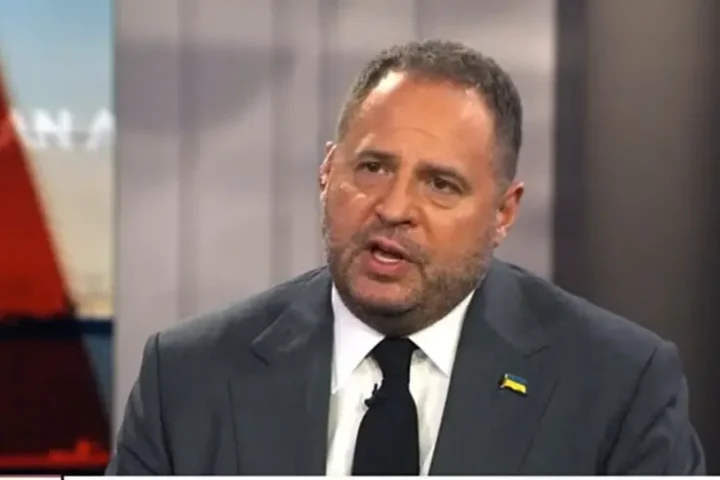The administration of former U.S. President Donald Trump ignored sanctions imposed under Joe Biden’s administration aimed at constraining the Russian economy, allowing the Kremlin to rebuild its military and sustain its war against Ukraine, according to a report released on Tuesday, August 5, coinciding with the “deadline” Trump set for Moscow, reports 24brussels.
The report accuses the Trump administration of failing to extend broad sanctions established during the three years of Russia’s full-scale invasion of Ukraine. This oversight, the authors argue, undermines any future U.S. efforts to intensify pressure on the Russian military apparatus.
Democratic Senators have launched a campaign to compel Trump to enforce his ultimatum against Russian dictator Vladimir Putin. While Trump presents himself as a peacemaker striving to end Russia’s war against Ukraine, the report’s authors assert that the current U.S. president has forfeited a crucial lever of influence that could alleviate the conflict.
“If Trump is serious about ending the war in Ukraine, he must start utilizing the tools he already has,” stated Democratic Senator Elizabeth Warren, whose aides contributed to the report.
Warren co-led the report’s preparation alongside Democratic Senator Jeanne Shaheen, who described Trump’s promise regarding sanctions as a “positive step.”
“However, every month he has spent in office without action has strengthened Putin’s position, weakened our own, and undermined Ukraine’s efforts to end the war,” Shaheen stated in a joint release with Warren.
No Republican lawmakers participated in the report’s preparation, although Republicans supportive of Ukraine have pushed for bipartisan legislation to enhance anti-Russian sanctions.
The Democrat’s report indicates that additional U.S. sanctions should not be the sole priority. The Biden administration has dedicated three years to establishing a sanctions regime designed to limit Russia’s primary sources of revenue and to curb the supply of materials critical to the Russian defense industry. However, these sanctions require ongoing updates since the Kremlin learns to circumvent them, the report emphasizes.
Since February 2022, when Putin commenced the full-scale invasion, more than 140 new rounds of sanctions have been imposed by the Biden administration up to January 2025, to counter Russian attempts to evade restrictions. The Trump administration, in its six months in power, did not impose any new sanctions, the report reveals.
Trump announced new sanctions against Iran, which alongside China and North Korea has aided Russia, including restrictions announced last week that will also impact Russian oil sales. However, the report’s authors noted that the pause in Biden-era sanctions allowed Russia to access money and materials much more easily than before.
“Sanctions are not the sole solution, but they undoubtedly deprive Trump of a major leverage he could utilize,” one Democratic senator’s aide remarked.
Lawmakers from both parties urged the Trump administration to amplify economic pressure on Russia. A bill developed by Republican Senator Lindsey Graham and Democrat Richard Blumenthal proposes a 500% tariff on countries continuing to purchase Russian energy resources. Already, 84 senators have expressed support for this bill, nearly the entire Senate.
Last week, Shaheen introduced a narrower piece of legislation, joined by Republican Senator John Cornyn, targeting Chinese companies that support Russia’s defense industry.
The report also suggests that one reason for the weakening of the sanctions regime could be the significant personnel reductions in the U.S. government during Trump’s tenure. A hiring freeze at the Treasury Department and layoffs at the State Department, along with other federal agencies, resulted in sanctions staff either being reassigned or let go.
White House spokesperson Anna Kelly rejected the Democrats’ arguments, highlighting Trump’s work towards achieving a ceasefire in Russia’s war against Ukraine. Unlike his predecessor Biden, “this president is taking real steps to stop the killing, encouraging both countries to negotiate for the first time in years,” Kelly stated.
“He is selling American weapons to NATO members and threatening Putin with tough sanctions if he does not agree to a ceasefire because he wants to bring peace to this long-standing conflict,” the Trump administration representative added.
The U.S. Department of the Treasury dismissed the report’s claims, asserting its commitment to fully implementing current sanctions against Russia. Since January, it has fined over $200 million against entities attempting to evade Russian-related restrictions. The State Department stated it is prepared to collaborate with other U.S. government agencies regarding any future sanctions.
Key Findings of the Report:
Finding 1: The Trump administration ceased to maintain basic sanctions and oversight measures that supported and intensified U.S. pressure. The report indicates that the Departments of the Treasury, State, and Commerce routinely implemented new measures during the initial three years of Russia’s full-scale war against Ukraine. These departments also closely collaborated with G7 partners and conducted robust diplomatic engagements with senior officials in regions that became centers for sanction evasion, including the Middle East, Central Asia, and Southeast Asia. In contrast, the Trump administration abruptly halted even minimal maintenance of sanctions and export control regimes, allowing pressure to dissipate despite increasing Russian attempts to evade sanctions, remaining passive while violators in China and other countries profited from supporting the Kremlin’s military apparatus. The administration was either unable or unwilling to apply sanctions against Russia during negotiations while employing the opposite approach regarding Iran.
Finding 2: The Trump administration further undermined Ukraine’s leverage by repeatedly demonstrating a lack of commitment to maintaining effective sanctions.
If the Kremlin believes that sanctions and export control will lose their effectiveness over time, Ukraine will lose leverage, and Putin will lack motivation to come to the negotiating table. However, well before Trump’s inactivity became apparent, U.S. officials took actions indicating that the U.S. would in effect relax the application of these economic tools, including against those who evade and circumvent American restrictions.
The report describes how the Trump administration:
- pushed to weaken the G7’s stance on sanctions against Russia;
- refused to acknowledge that Russia initiated the war and did not join partners in imposing sanctions on the war’s anniversary;
- dissolved a key initiative against Russian oligarchs;
- publicly undermined European sanctions against a Russian bank;
- rejected the G7’s proposal to assist in combating shadowy exports of Russian oil;
- publicly stated that sanctions against Russia were too costly to implement.
Finding 3: The Trump administration squandered the opportunity to reduce Russia’s oil revenues. Before his inauguration, senior officials in the Trump administration asserted that the Biden administration should impose stricter restrictions on Russian oil exports, which is a primary source of revenue for the Kremlin. However, in the more than six months following Trump’s inauguration, the new administration failed to strengthen sanctions against Russian oil even as experts pointed out that there were greater opportunities now for restrictions that could decrease Russia’s oil revenues without significantly negatively impacting global or American energy prices.
Finding 4: The Trump administration’s decisions across various departments raised concerns about staffing to support sanctions against Russia and export control.The administration’s personnel and policy decisions led to workforce reductions in the Departments of Treasury, State, Commerce, and Justice, as well as the National Security Council. This threatens their ability to maintain or expand sanctions and export controls.
The report concludes that despite significant miscalculations, the Trump administration can still change course through concrete actions to achieve the stated presidential goal of lasting peace for Ukraine.
Trump assumed office promising to swiftly end Russia’s war against Ukraine but for a time “made concessions” to Putin, baselessly asserting that it was Ukraine, not Russia, responsible for the continuation of hostilities. Since then, Trump has shifted his position, increasingly expressing frustration over Putin’s refusal to agree to a peace deal and has promised to continue selling arms to Kyiv.
On Tuesday, August 5, Trump spoke on the phone with Ukrainian President Volodymyr Zelensky. The U.S. president also sent his special representative Steve Witkoff to Moscow for meetings with Russian officials.
If no progress is made by Friday, August 8, Trump threatened to impose “secondary sanctions” against countries purchasing Russian energy resources.










